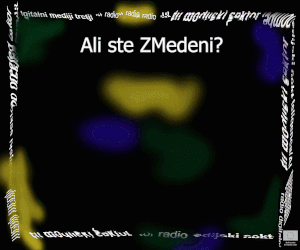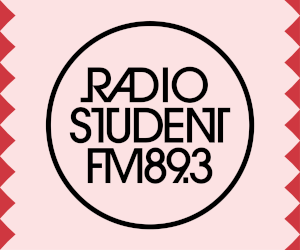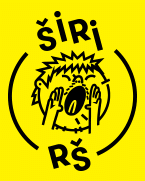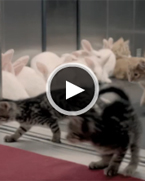Mr. Gay Syria
V današnjem RKHV intervjuju bomo prisluhnili pogovoru s turško režiserko Ayşe Toprak, čigar dokumentarni film Mr. Gay Syria je na 23. ediciji Sarajevskega filmskega festivala prejel nagrado za človekove pravice v kategoriji tekmovalnega programa dokumentarnih filmov.
Ayşe Toprak je film študirala v New Yorku. Po petnajst letih študija ter dela tako v New Yorku, Londonu, kot tudi Katarju in Dohi se je leta 2011 vrnila v Turčijo, kjer je za Al Jazeero snemala polurne do tričetrturne politično naravnane dokumentarne filme – denimo Don't Tell Us Fairytales o treh desetletjih turškega konflikta s svojo kurdsko populacijo, Schools on Edge o izobrazbi sirskih begunskih otrok, ter druge.
Mr. Gay Syria, njen prvi celovečeren dokumentarni film, je izjemno intimističen, a tudi političen film, ki iz točke organizacije tekmovanja Mr Gay World med sirskimi begunci v Istanbulu kamero kolažersko usmerja v nekaj tekmovalcev, ki so v Turčiji dvojno marginalizirani. Prek prikaza različnih usod, ki niso odvisne le od različnih obravnav pravnih primerov za pridobivanje azila v eni izmed evropskih držav, a tudi od osebno izborjene seksualne svobode, ki gre običajno z roko v roki s psihičnem in/ali fizičnim nasiljem, uspe film dodobra pretresti stereotipno podobo begunca. Kamera se svojim junakom približa na zelo intimen ter nevsiljiv način, a film obenem ohrani nesenzacionalističen in premišljen ritem, ki kljub težkim temam obdrži tudi smisel za humor.
***
How did the idea for the film come about?
So the idea for the film for the film came about basically because of one of the main characters, Mahmoud, a friend of mine. I met him when I was working on a documentary for Al Jazeera, on the education of Syrian kids. I was looking for a fixer since I don't speak Arabic, and so I met Mahmoud and before me interviewing him, he just said “Look, I am gay, if you have a problem with that, we can’t work together.” So he was very outspoken about his sexuality and what ended up happening was that we became very good friends over the years and he had this one big dream to take the first Arab man to an international beauty contest called Mr. Gay World. He saw it as defiance and also as a way to raise their voices amidst everything that is happening with the Syrian war. And he thought that he had to find an outrageous way of saying something. And so I said ok, I’m going to follow you.
Ok so for how long did you follow him, how long did the shooting take, and perhaps what were the biggest challenges while doing so?
The shooting was about one year in total; some of the challenges were that the stories kept changing all the time because you are working with the refugees, and then the story revolves around the beauty contest that they are trying to make it to, but there are so many obstacles that they were faced with, so the scenario that I had imagined in the beginning had to change many times and basically become something else. And also it is a difficult subject matter – we had to be very careful about what to shoot and what not to shoot. There is a very thin line in terms of putting people in danger. So we had to be very careful in making sure that people were safe.
So how about the editing process, you probably had a lot of material and what were the biggest decisions you had to make regarding that?
While I was shooting, we already had our French-Tunisian editor Nadia Ben Rachid working on the film, so she was doing scenes. So eventually we ended up editing for probably two or three months, which was a very quick turnaround for a documentary like this. But we also kind of knew where the story was going so there were a lot of scenes for which I knew that will never make it into the film.
Could you talk a bit about the relation between the political and the intimate in your film, since those are basically the two levels which are constantly interchanging?
I could say that the film is very political, but it is not really in-your-face political, in the sense that I am not doing something for the politics of it, I am doing something for the humanness of it. It is about the voice of these characters getting heard although I don’t like saying “the voice of these characters getting heard” actually because it is a film that we all made together, I feel like that. They also thought that it was their film. So I think it was also very important to actually tell politics through personal stories so that people could perhaps get closer to the issues. Because often times we watch a lot of political stories but we don’t have that type of empathy, but when there’s a real character that you’re watching going through some sort of a struggle, and you want his problems to be resolved, etc., sometimes you can say more about politics through films where you get attached to characters.
Could you tell us a bit about the Syrian and/or refugee LGBT scene in Turkey and perhaps how was you making the film accepted in the community?
The refugee count in general in Turkey – there are no numbers. We have an open door policy which means that a lot of people cross the borders, stay with families, etc., they do not really go to refugee camps. Some people don’t ever register because they dream of going back to Syria, if you register in Turkey then that means that you’re defined as a refugee and stay, so some people never register. The numbers are therefore all over the place, which means that the LGBT numbers are also all over the place. And there’s often the case that, while people in Istanbul are out, and are mostly hanging out in the city canter, in many Anatolian cities people never come out to their families, never join any LGBT group, etc. But this question was asked at our Q&A, and Mahmoud, one of the main characters is a much better person to tell, he says that there are around one thousand people in Istanbul right now; I think it was a much bigger community but a lot of them have already left to Europe by sea or by the UNHCR. Of course, some of them for example wanted to cooperate but couldn’t be in the film, for various reasons, from family reasons, or they just didn’t want to be seen. But every time we started shooting we told them that those who don’t want to be in the film don’t have to be, that they can step aside, etc. But still, even with people who didn’t want to be in the film, they wanted to be a part of this whole thing and we made sure that they were. And the main characters I think they saw the films as a way of getting out of their situation, Hussein has a line in the film where Mahmoud asks him in an interview for Mr. Gay Syria why he is joining this contest, is it out of despair or courage, and Hussein answers: "We can say that despair led me to courage". So I think it is also the case that he didn’t want to stand where he is, he wanted to do something forward-looking so I think that’s why he wanted to join the film as well. And after a while, when they got close to me I think they understood that my intentions are not to exploit, but that my intentions are to say something about their situation. I think when they got close to me like that, they practically wanted to share everything.
Most of the characters in the film, they want to leave Turkey in some way or another. They have one of the European countries as the destination that they wish to go to. Could you talk a bit about the situation with the asylum granting, is there policy that helps them in terms of political protection due to their being LGBT or not?
In terms of UNHCR, there is a little bit of political protection, but the problem is that it takes so long. All of them basically want to leave for all the reasons that other Syrians want to leave. But Turkey hasn’t signed the Geneva Convention, which means that they actually are not recognized as refugees, they are called guests. So this means they don’t have the rights that refugees generally would have, which includes health care rights, education rights, a lot of people have to do really dodgy jobs and so on. And when it comes to the LGBT individuals, it’s the double edge of the sword. When it comes to jobs they have to go into sex work, dealing drugs, etc. And of course they have their families who reject them, and the Turkish society has laws that protect the LGBT individuals but it is still a very homophobic society so you have that pressure and everything is much more claustrophobic for them. And obviously UNHCR knows this, but their processes also take so long, because there are so many applications and there are many applications by women and children who are given priority. So I think that is why it takes so long and people try to find other routes.
So the film hasn’t been shown in Turkey yet, can you tell us when do you plan to do it and what do you think the reception will be?
The film will probably be shown in next year’s festival, we wanted to show it this year but Hussein is still in Turkey so we decided to postpone it for security reasons. Hopefully we will also have some sort of a little distribution; we have a distribution award already, there’s a cinema that is called The Other Cinema, which shows independent films, so we hope that we can actually screen it there as well. I think the reception will be interesting, I think the people who will go and see it are already people who are open minded, I presume. I wish people who do not care about this causes would go and see it but I am not sure if they will, especially in today’s Turkey.



























Prikaži Komentarje
Komentiraj